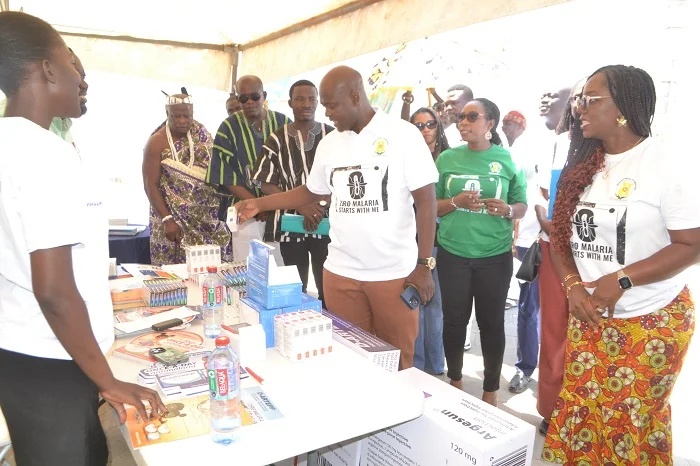Ghana achieves 97% reduction in malaria deaths

Ghana has been able to reduce deaths caused by malaria by 97% between 2014 and 2024.
In addition to this, outpatient department have also seen a 3% decline, while hospital admissions as a result of malaria have fallen by 17%.
During an event to commemorate the 2025 World Malaria Day, the Minister of Health, Kwabena Mintah Akandoh said the country’s National Malaria Elimination Strategic Plan for 2023 to 2028 is aimed at reducing deaths caused by malaria by 51%.
In a speech read by the Director-General of the Ghana Health Service (GHS), Professor Samuel Kaba Akoriyea on behalf of the health minister, he stated that under the plan, there was also a target of 36% drop-in under-five malaria case fatality rate in 2024, using 2022 as a baseline, emphasising that there was also a plan to ensure a steady roll-out of malaria vaccine with over 70% coverage for the first dose.

He again said, “We will continue to expand effective interventions such as indoor residual spraying, insecticide-treated nets distribution, seasonal malaria chemo prevention, intermittent preventive treatment for pregnancy, case management, malaria vaccines, and other new interventions”.
He, therefore, called on all to sustain the momentum by inspiring action in every home, school, and district to help eradicate malaria.
Professor Samuel Kaba Akoriyea further noted that, “Let us ensure that every Ghanaian, young or old, understands that malaria elimination begins with us. Adding that, “Together, with commitment, knowledge, and collective action, we can, and we will make history,” he added.
Commemoration.
The 2025 commemoration is on the theme: “Malaria Ends With Us: Reinvest, Reimagine, Reignite”.
It is a grass-root campaign targeted at reinvigorating efforts at all levels from global policy to community action to accelerate progress toward elimination.
The Director of Public Health at the Ghana Health Service, Dr Franklin Asiedu-Bekoe, said the improvements were as a result of dedicated efforts by “our health workers, policy makers, partners and the communities who continue to engage and respond”.
Noting that their investment in data-driven planning, targeted interventions, and community mobilisation is clearly producing positive results.
Giving updates on the progress made by the Ghana Health Service, Dr Asiedu-Bekoe said the Indoor Residual Spraying (IRS) campaign was successfully implemented across 28 districts.
Through effective collaboration and strong field coordination, the Ghana Health Service (GHS) achieved a significant coverage rate of 53%. This was complemented by the successful distribution of over 19 million insecticide-treated nets during a recent mass campaign.
In the 21 districts targeted for malaria elimination, malaria positivity rates dropped notably from 20.9% to 16%, positioning these areas as examples of how leadership, community involvement, and targeted strategies can drive meaningful health outcomes.
The government’s direct support in implementing initiatives in two of these districts further underscores its commitment to malaria elimination.
Overall, these results highlight the importance of strategic partnerships and national ownership in advancing towards a malaria-free Ghana.


 GRTCC suspends planned ‘August 8’ 20% public transport fare increase
GRTCC suspends planned ‘August 8’ 20% public transport fare increase  State funeral for helicopter crash victims set for August 15 at Black Star Square
State funeral for helicopter crash victims set for August 15 at Black Star Square  Black Queens rank 67th in FIFA ranking despite WAFCON performance
Black Queens rank 67th in FIFA ranking despite WAFCON performance